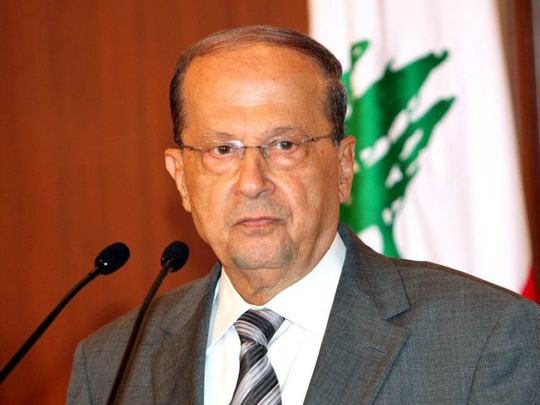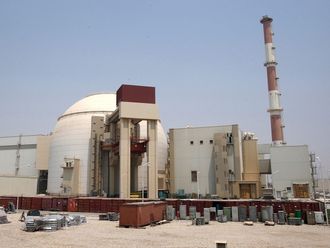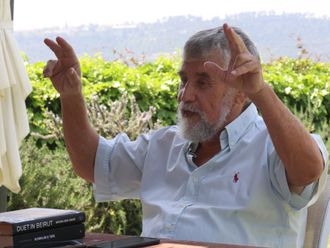
Beirut: Pro-Syrian Free Patriotic Movement founder and presidential hopeful Michael Aoun was dealt a fresh blow to his candidacy bid when Marada leader Sulaiman Franjieh refused to withdraw from the presidential race by the time parliament convened on September 28, continuing to obstruct Aoun’s path to the presidency.
Aoun, who has been vying for the post since Michel Sulaiman’s term ended in May 2014, has yet to realise his dream, despite being backed by the powerful Shiite Hezbollah militia, and also despite his pro-Syrian political stances.
He also was backed by his rival, Lebanese Forces leader Samir Geagea, earlier this year, in a surprise move to push the presidency forward.
The inability for Aoun to be elected into office has sparked wide speculation as to what was really happening behind the scenes.
It made little political sense for Damascus to obstruct his candidacy, given his 180 degree shift from opposing the dynasty of Al Assads (Father and Son), to backing it.
All indications point to an underlying deep mistrust of Aoun by the Syrian regime.
A highly placed Western expert on Lebanese-Syrian affairs told Gulf News that in his assessment, Damascus preferred Franjieh for two specific reasons: first, his loyalty to the Syrian regime that was nurtured by personal ties to President Bashar Al Assad and, second, because it perceived Aoun as a volatile man.
“Most FPM followers are too young to remember Aoun’s ‘War of Liberation’ against the Syrians,” he said on the condition of anonymity.
“But, senior Syrian officials have not forgotten.”
During Lebanon’s civil war, Aoun actively opposed Syrian interference in Lebanon.
In 1989 he declared a “Liberation War” on Syria, which ended after Syrian forces invaded Beirut in 1990 forcing Aoun to flee to Paris, where he lived in exile for 15 years.
Aoun was only able to return to Lebanon on May 7, 2005, after the assassination of Rafik Hariri prompted powerful anti-Syrian protests which led to the withdrawal of Syrian occupation forces in 2005.
He then formally apologised for his anti-Syrian activities, including an appearance in front of the US Congress in September 2003 to urge the adoption of the Syria Accountability Act, which demanded that Syria withdraw its estimated 25,000 troops from Lebanon and allow restoration of Lebanese sovereignty that he deemed was “an absolute necessity if terrorism is to be defeated”.
In words that few Syrian officials forgot, Aoun told Congress: “In the 1970s and 1980s, Lebanon was the first victim of Syrian terrorism. And this was one of the main reasons in 1978 to list Syria as the first terrorist country on the US State Department list of terrorist states. Back then, Hezbollah and Hamas did not even exist,” he testified.
Upon his return, Aoun entered in the March 8 alliance with Hezbollah and other pro-Syrian groups and has since then carried out Damascus’ bidding.
In 2008, he visited Tehran and then Damascus, where he officially declared he was turning the page on his previous anti-Syrian actions.
“The 1990 Liberation War is an old story that is now over,” he told Syrian President Bashar Al Assad.
But observers point to Aoun’s inability to become president as proof that Syria has neither forgiven nor forgotten Aoun’s past actions.
Instead, Damascus prefers to string Aoun along as it prefers Lebanon to be a weak state with no president at all.
An independent Lebanon is not in the interests the Al Assad regime.
It is also an especially sensitive time for Damascus, given it has just entered its fifth year of a crippling civil war that has drained the regime’s resources and significantly weakened it.












